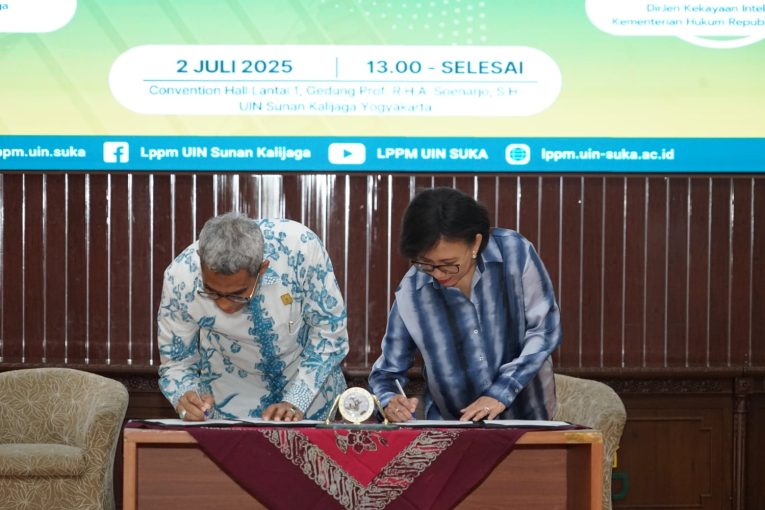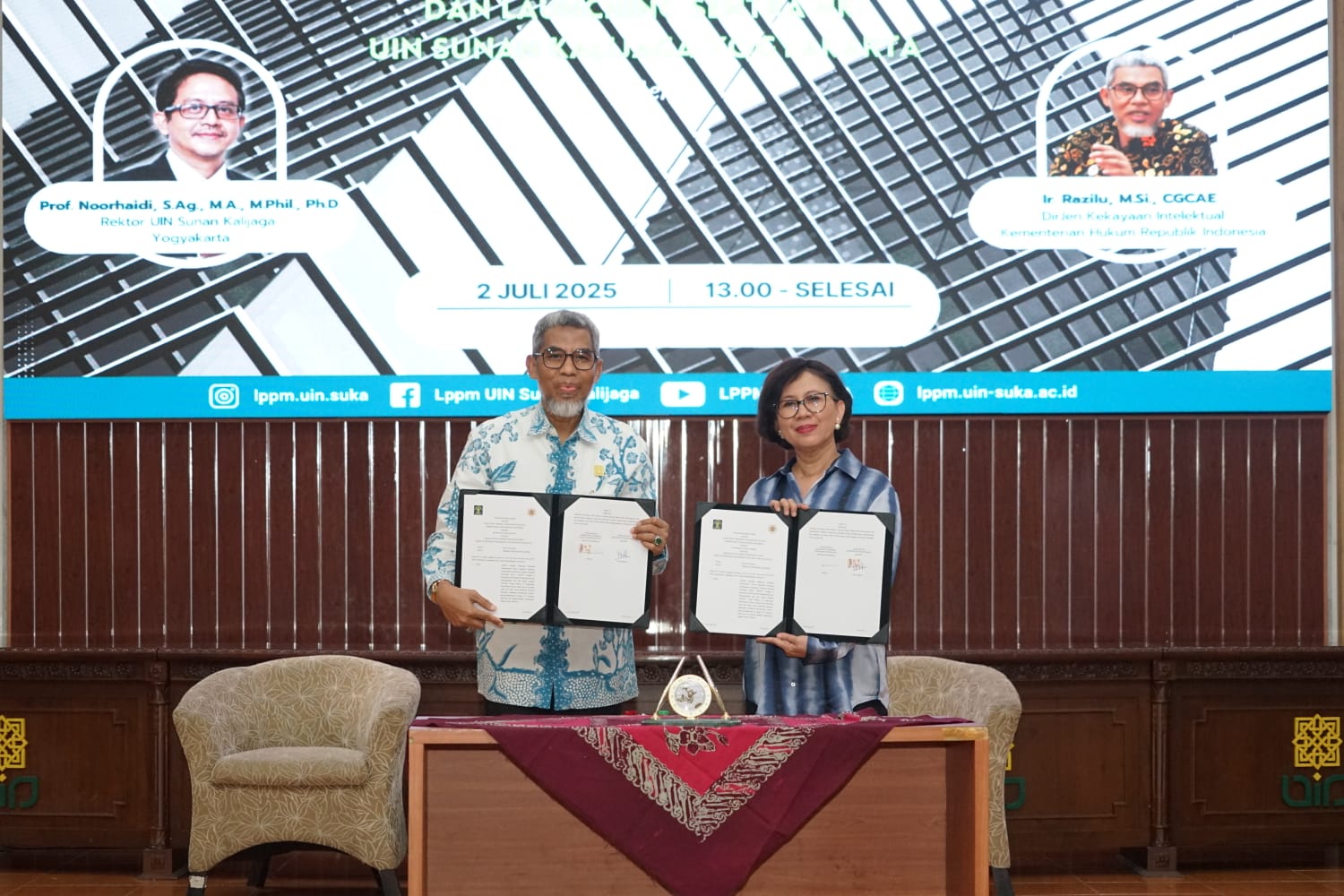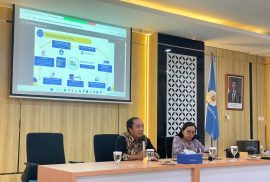
Yogyakarta, July 2, 2025 – Universitas Gadjah Mada and other several universities in Yogyakarta such as UIN Sunan Kalijaga, Universitas PGRI Yogyakarta, and Universitas Negeri Yogyakarta (UNY) have collaborated with Directorate General of Intellectual Property (DGIP) of the Ministry of Law and Human Rights of the Republic of Indonesia. The signing ceremony aimed to strengthen the synergy between higher education institutions and the government in managing and protecting intellectual property (IP) took place on Wednesday, July 2, 2025, at the UIN Sunan Kalijaga Convention Hall in Yogyakarta.
The Director General of DGIP Ir. Razilu, M.Si., CGCAE., emphasized the importance of prioritizing the quality and utility of intellectual property (IP) over the quantity of registrations. “There is no need to compete in increasing the number of IP filings. What matters more is developing IP that can be licensed and deliver tangible benefits to society,” he asserted. He also reminded participants that patents offer the strongest protection for inventions and that researchers must consider IP aspects from the beginning of the research proposal process. 
During a discussion with fellow university leaders, the Rector of UGM Prof. dr. Ova Emilia, M.Med.Ed., Sp.OG(K)., Ph.D.. highlighted the strategic role of the Intellectual Property Management Office (IPMO) at UGM. She stated that IPMO is responsible not only for managing research outputs, but also for playing a key role in the commercialization of academic innovations. “IP generated by lecturers, researchers, and students should bring value and impact to society and industry. IP centers, including IPMO, are expected to identify commercialization potential and appropriate licensees,” she said.
The collaboration agreement aims to strengthen the national innovation ecosystem rooted in academic research. It covers various areas, including IP registration and commercialization support, IP protection system education, and joint initiatives in research, seminars, training programs, and policy development. The initiative is expected to have a long-term impact by strengthening the role of universities in producing impactful innovations, fostering a culture of IP awareness among academics, and increasing higher education’s contribution to the creative economy and knowledge-based industries. Additionally, it will serve as a model for collaboration between the government and universities in research downstreaming. Ultimately, UGM and its partner institutions will contribute more significantly to Indonesia’s national innovation ecosystem, ensuring that research and innovation results benefit the public. UGM, in particular, is expected to support institutional capacity building at IP centers within DGIP’s partner universities.




